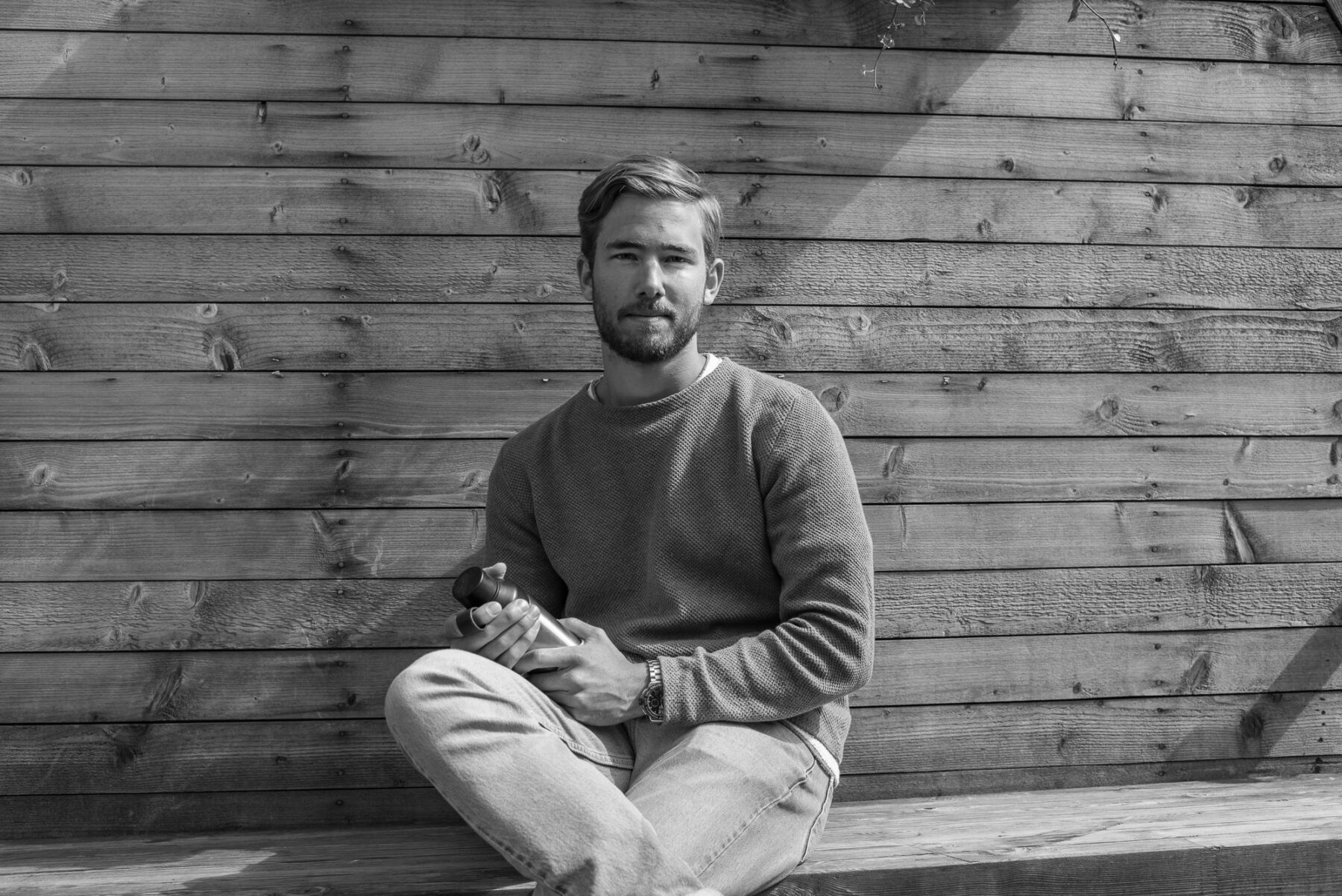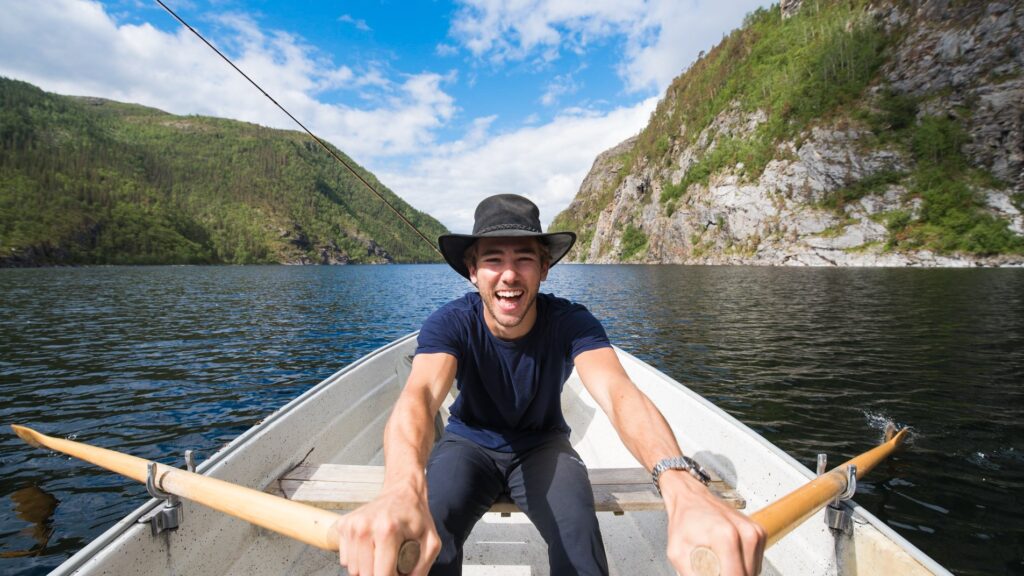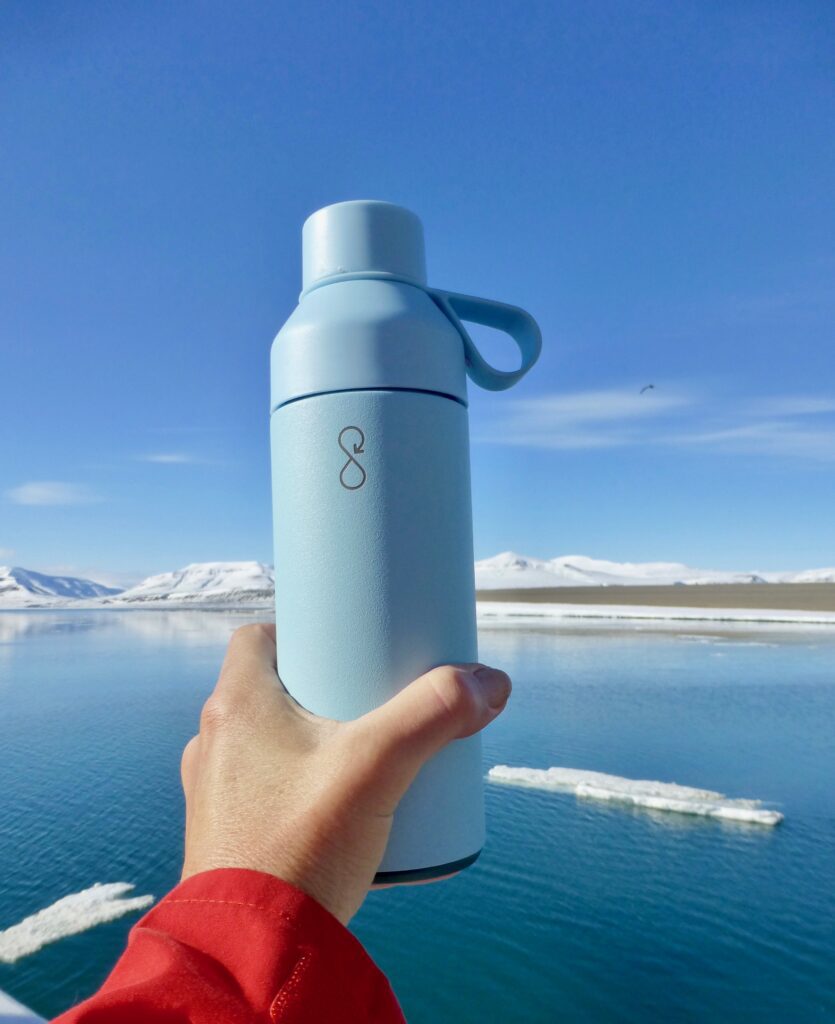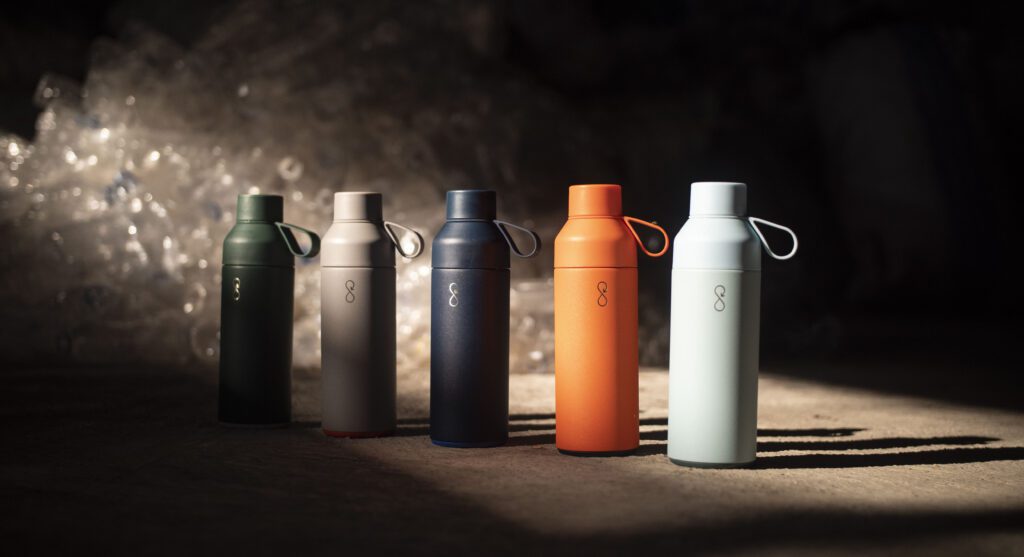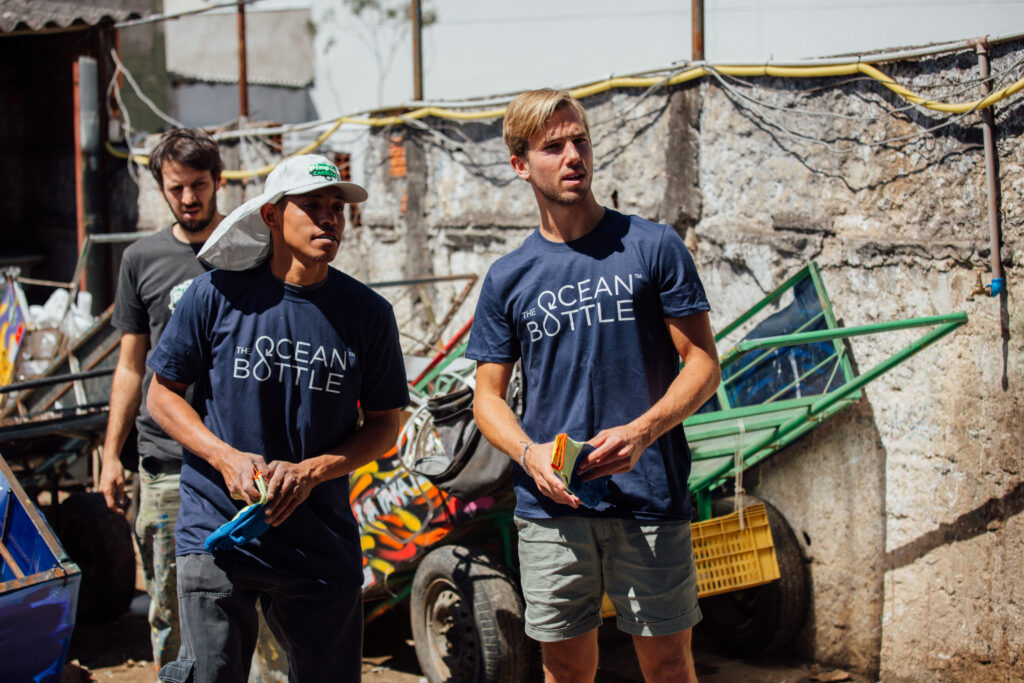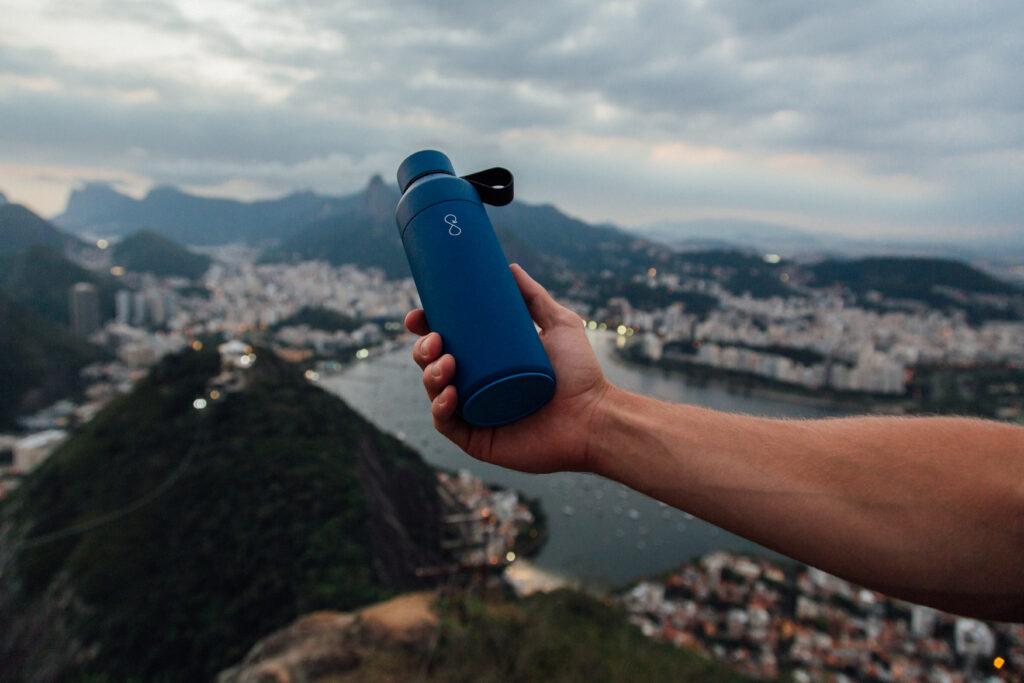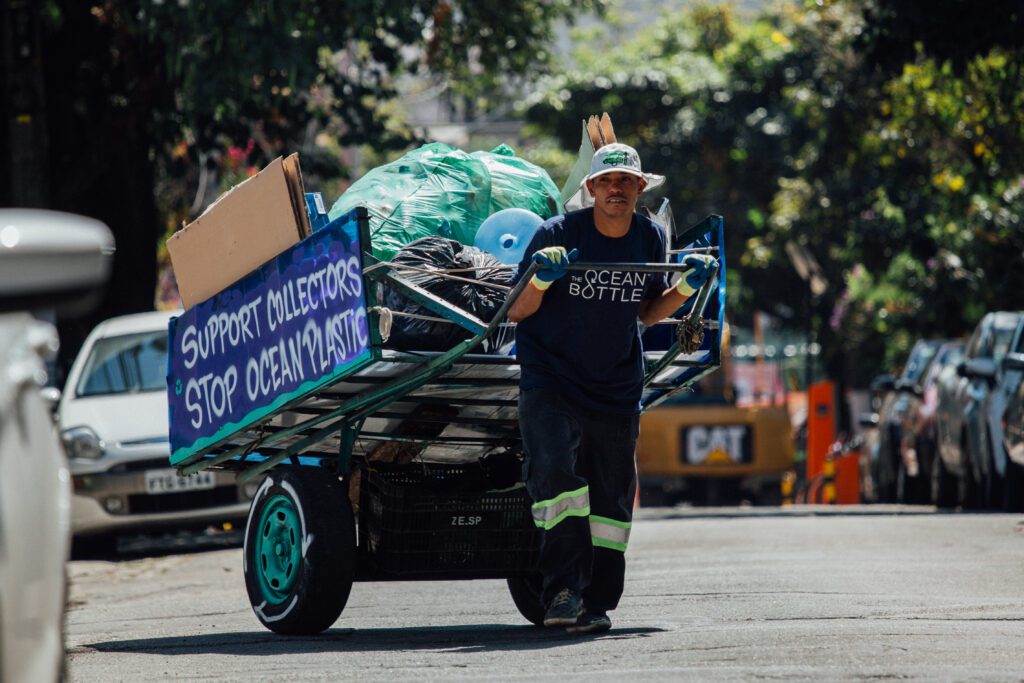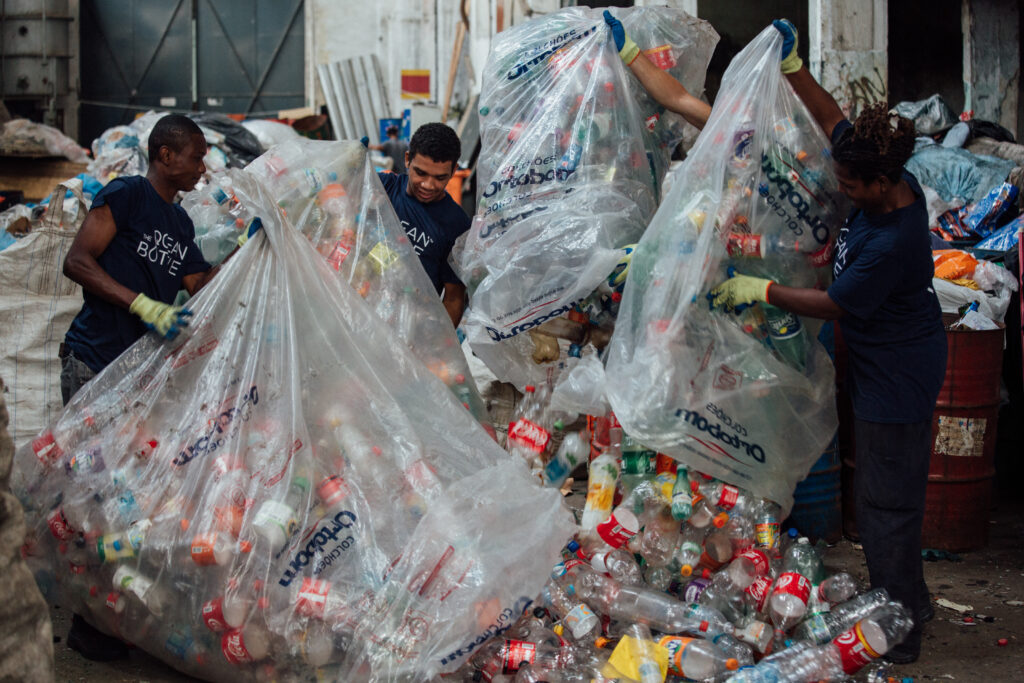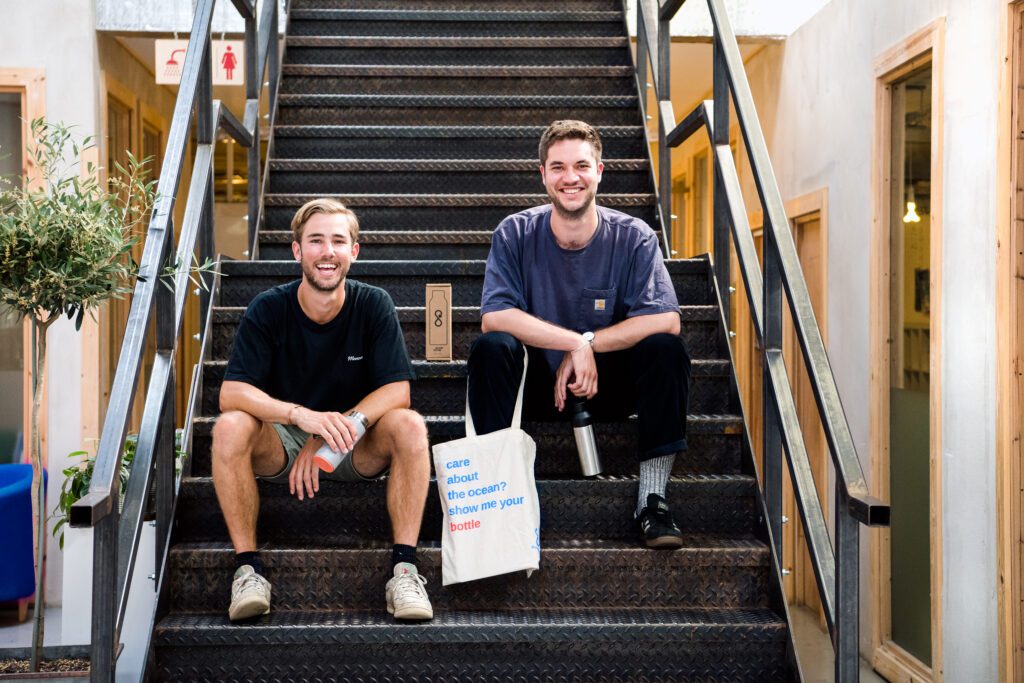By 2030, it is expected that the amount of plastic entering the world’s oceans each year will have doubled to an estimated eight million tons. That is the weight of nearly 90 aircraft carriers, a mass that will make up 80% of all marine debris from surface waters to deep-sea sediments. While there are several ways to stop plastic pollution, the problem only seems to grow.
With this in mind, Norwegian Arts talked to William Pearson, co-founder of Ocean Bottle, a company dedicated to dealing with the oceans’ plastic problem at its source. In 2019, this 26-year-old Norwegian featured in Forbes magazine’s ‘30 under 30’ list of entrepreneurs, thanks to his simple idea: if you buy their stainless-steel bottle – ‘the worlds most needed bottle’ as their slogan goes – you can stop a 1,000 plastic bottles from entering the sea.
Tell us a bit about your background; have you always been a fan of the ocean?
I spent a lot of time sailing in northern Norway with my grandfather when I was younger but I first became obsessed with the environment when I was at school. I completed my undergraduate degree in engineering, then spent a year working at sea in the Indian Ocean, which is where I saw first-hand the current state of pollution in the world’s oceans.
Was plastic pollution a problem you saw in your everyday life growing up in Oslo?
I actually wasn’t aware of it for quite some time. I used to drink plastic water bottles myself, as I presumed it was a system that worked and wasn’t aware of the consequences. I only recently had the awakening that companies are bottling publically available tap water that already tastes delicious and selling us the plastic packaging. Even in Norway, where we have the great deposit return scheme, only around 10% of new plastic bottles are from recycled content and the rest gets downcycled. The plastic problem obviously extends far beyond just water and almost everything we buy is wrapped in the stuff – we have to ask ourselves do we need to wrap a salad in a material that lasts for 400 years?
When did this passion for the climate and plastic pollution take off?
I have wanted to work with protecting the environment since high school. Without a well-functioning planet, we cannot sustain life on earth as it exists today, it’s as simple as that. I have been reading about the environment ever since and did internships in renewable energy and ecological products. I felt really driven to enable individuals to make an impact, because I think everyone can feel a bit helpless.
If you look at consumer habits aggregated, they directly create many of the world’s issues and are therefore also the key to solving them. We can help accelerate this even further through legislation and, ultimately, systems change.
What inspired you to set up Ocean Bottle?
After my first season as a deckhand in the Indian Ocean, I was travelling in Colombia and found rivers quite literally choking with plastic. After these encounters, I felt inspired to take action. Action began with further research into the plastic problem, learning that 22 million kilograms of plastic pour into the ocean every single day. I was left questioning how could we collect plastic before it enters the ocean? Which is when I came across Plastic Bank [a social enterprise that pays people to collect plastic waste] who were in the process of setting up recycling infrastructure in some of the worst-hit places such as Haiti, Philippines, Indonesia, and Brazil.
I realised that this was a great solution and that we should connect people all over the world to it, which is where Ocean Bottle came in. I was determined to do something positive in the environmental space, but combine it with business. Noticing that consumers wanted to be empowered to make positive choices and be part of the solution, I started working on Ocean Bottle. I met co-founder Nick at London Business School in 2017, we incorporated the company in 2018 and then travelled out to Norway to design the product with our design partners, K8. The design of the product itself took a full year and thousands of hours. It received the Red Dot Design and Green Product Award 2020 and we ended up with a Norwegian-looking product which balances aesthetics, sustainability and new levels of versatility.
Ocean Bottle promises: “With the sale of every bottle we fund collection of 11.4kg of plastic, equivalent to 1,000 plastic bottles and invest in people-powered waste management”. Can you elaborate on how you do this?
We do this by putting a higher value on plastic waste and setting up collection points. Plastic waste is collected by locals in coastal communities who can exchange it for money, healthcare, tech products, school tuition and micro-finance at their local Plastic Bank. Plastic Bank’s whole operation is powered by IBM blockchain, which allows impact to be traced back to the people and places where plastic has been collected. We use a portion of the funds from the purchase of every Ocean Bottle to pay for the collection of plastic, not only stopping this from entering the ocean but also creating a positive social impact.
Do you think Ocean Bottle can halt the practice of putting plastic into the oceans?
Completely stopping the flow of plastic into the ocean will be very difficult and currently the trend is still going in the reverse direction, with ocean plastic already expected to double by 2030. We can, however, make a big dent quite easily. It just needs funds and global action for proper waste management at the top sources and, of course, reduction in single-use packaging. The analogy that Plastic Bank uses is if your kitchen flooded because you left the tap running, you wouldn’t start cleaning up the water before turning off the tap. We need to stop the plastic going into the ocean before we can even think about collecting what’s already in the ocean.
This year’s global pandemic has presented a unique set of challenges for people all over the world. It must be difficult being an entrepreneur during these hard times?
This has been a challenging year for everyone and for some much more than others. Whilst we’ve been faced with a few challenges, like lost orders and other financial constraints, we have been incredibly fortunate so far and have still managed to fund collection equivalent to over 75 million plastic bottles to date and help support around 2,400 plastic collectors. I do have hopes for a truly green recovery from Covid-19.
Did the pandemic require the Ocean Bottle team to make special plans?
Initially, it had a big impact for the plastic collectors. Because they were in lockdown, they couldn’t go out and collect plastic and therefore earn their living. Plastic Bank were quick to launch a Covid relief fund for their network of collectors to give them access to credit. As a result, we launched the limited-edition Obsidian Black bottle, from which we donate 25% of the funds to plastic collectors in need. For every UK business or company order, we have also matched their donation to NHS key workers. The Ocean Bottle team is also willing to work remotely or in the office, whatever makes them comfortable.
What are your goals and hopes for yourself and Ocean Bottle?
Our goal would be a world where we go out of business, with all ocean plastic stopped!
Our pledge is to fund collection equivalent to 7 billion plastic bottles by 2025. In the shorter term we’re hoping to make through Christmas and we are hoping a lot of companies will be wanting to give their employees Ocean Bottles. We also have a lot of exciting partnerships and marketing plans, as well as new products and also a smart chip platform. Each of our products is NFC [Near Field Communication – technology for secure payments] activated for continued impact, so people can fund more plastic collection just by bringing their bottle with them to partner locations, which will enable us to exponentially increase our impact.
For more information visit Ocean Bottle
Top photo: William Pearson (Lars Botten)

